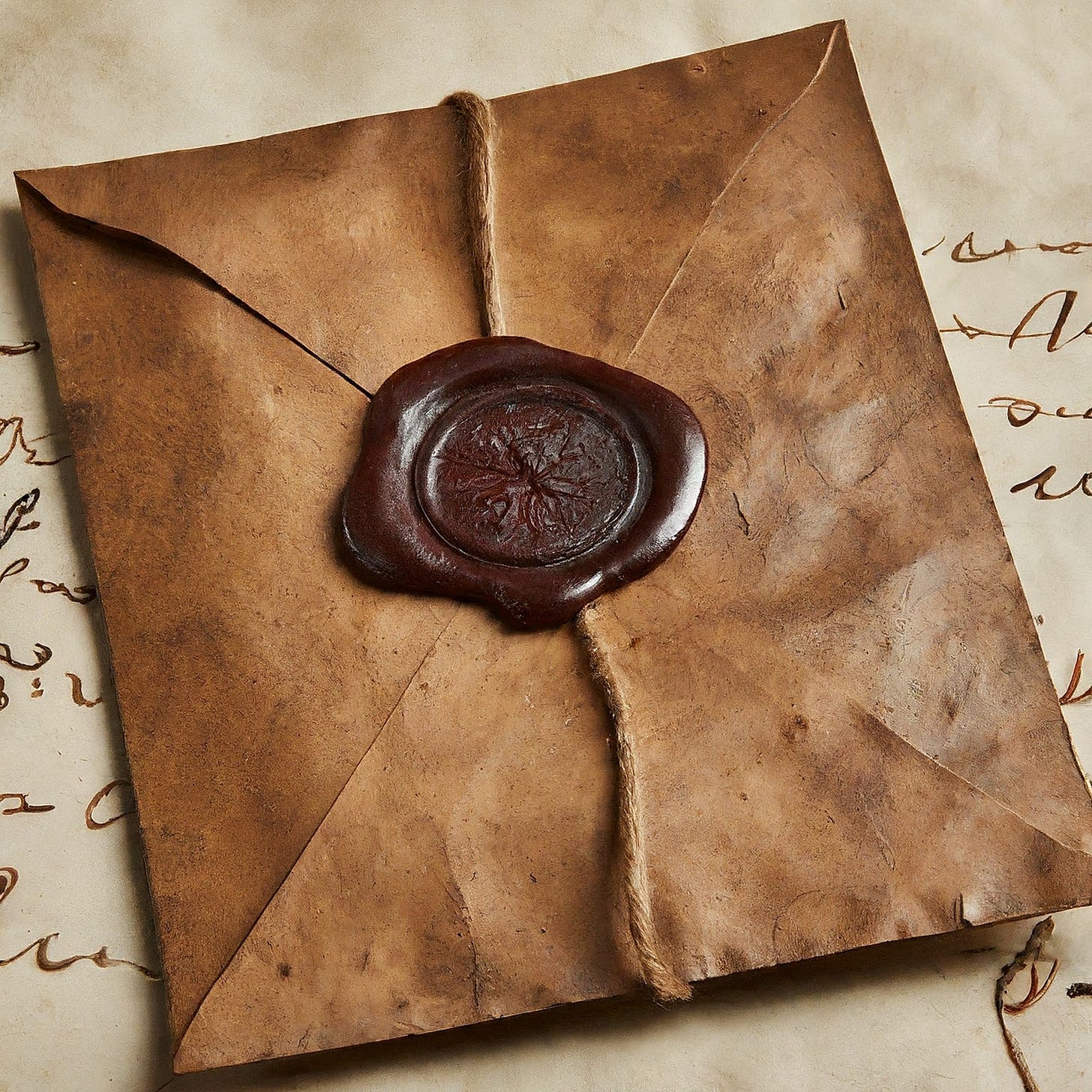Cache and Cachet
This thing really has cachet! Or is it cache? And how do you say that, again?
Cache and cachet are two words that sound like they share the same root word, and I’ve learned that it’s worth pulling that etymological thread whenever you see this sort of coincidence.
Cachet—pronounced “cash-AY”—traces its origin to the Latin word coactare, which means “to constrain.” Over time, this started drifting to mean something like to press together.
In Old French, coactare gave birth to the word cachier, meaning "to press or crowd," and later acquired the meaning "to hide." This meaning, too, drifted over the centuries to mean something more like a seal or a stamp, ultimately pressing the letter together, and concealing what was inside.
This cash-AY word entered English with this meaning around a thousand years ago, and this meaning broadened to include something more metaphorical. If a letter was important because it had a cachet on it, then perhaps a person who was important also had cachet.
Cache
Keep reading with a 7-day free trial
Subscribe to Goatfury Writes to keep reading this post and get 7 days of free access to the full post archives.


